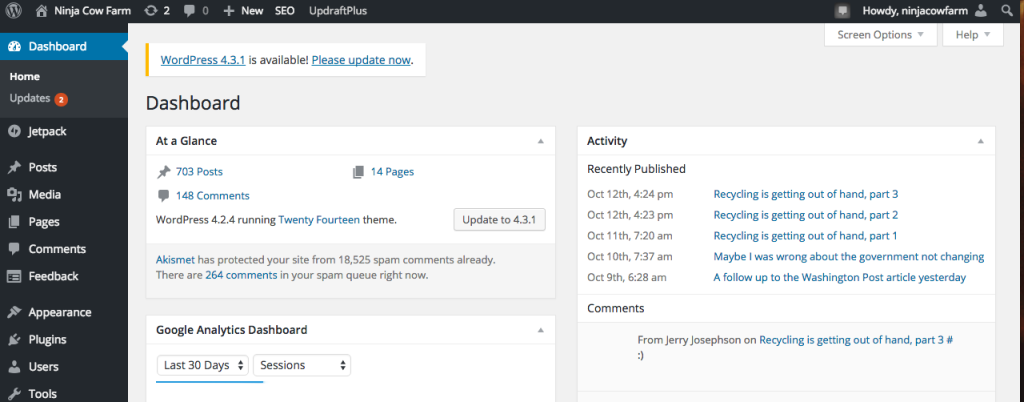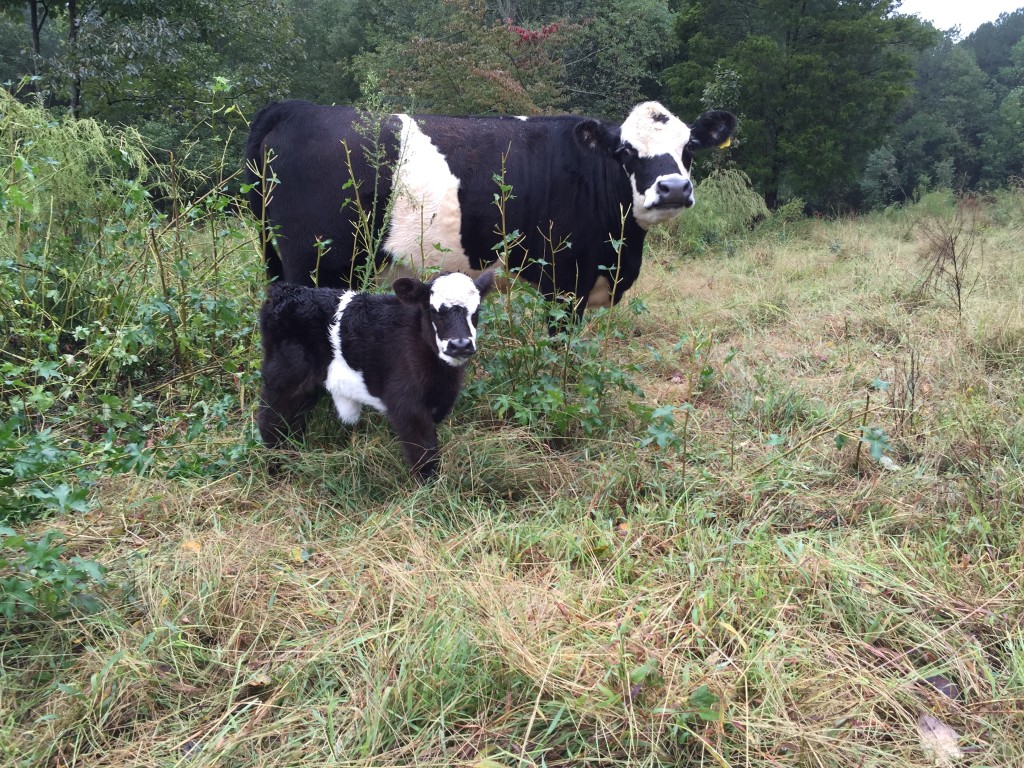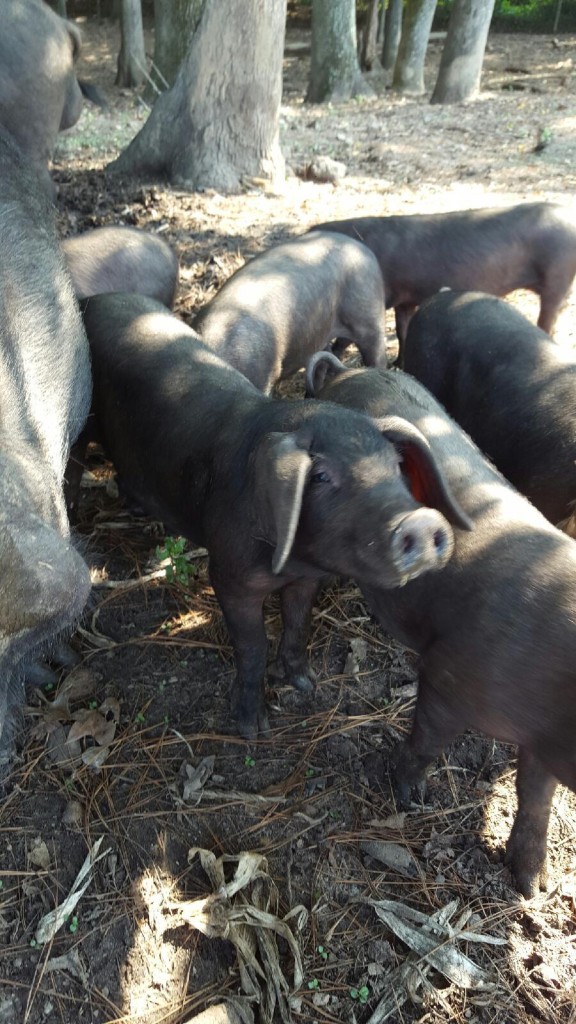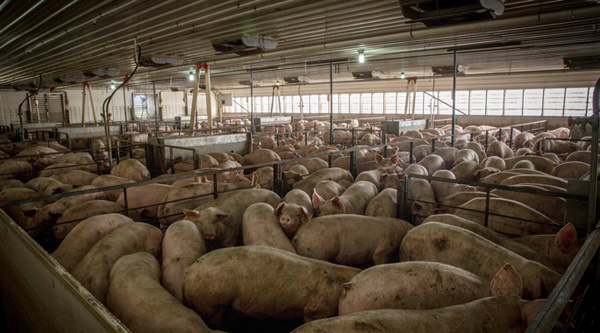“I’m not sure I’d publish quite as much as you do.” Advice from a professor at one of our Ag Universities.
That statement reflects the general attitude I’ve experienced from people well established in our industry. Long time farmers, long time academics, people who’ve been there and seen it all. The general feeling is that I’m inviting trouble by sharing too much information and the look on their faces and the unspoken statement says that before too long, I’ll wish I’d kept more to myself.
The funny thing is, I’m actually a very private person. Unless I’m talking about how the grass is growing or I’m giving you a tour of our farm, I probably don’t say that much at all. But when it comes to our farm, if you want to know anything at all odds are I’ve already told you.

In 2013 when we decided to transition from the private, closed gate farm we’d been since 1980 to a public, direct-to-consumer sales farm, we decided we had to do a few things differently.
One, we had to start keeping better records. Managing a few cows on pasture and selling off once or twice a year to the stock yard is a lot different than taking cattle from birth to finish on a larger scale. Standing face to face with the customer every day and answering for your meat quality takes a lot more oversight and attention to detail.
Two, we had to actually market our farm and get our message out to consumers. Having spent over 20 years in corporate America, I had plenty of exposure to marketing, ad campaigns, press releases, etc. By and large, I found it all distasteful and wasteful. Distasteful in that I’ve sat in the room where we discussed our value proposition which is corporate speak for how can we charge more by using marketing. Wasteful in that a 1% response rate to a campaign was considered a success. If 1% of my piglets lived, I’d be facing charges for animal abuse, not collecting a bonus for a job well done.
With this intellectual baggage firmly in tow, I came up with some key criteria for how we’d find our solution.
- I had to be able to accomplish whatever was needed for both record keeping and marketing from the pasture if need be.
- There couldn’t be any double work, or it had to be greatly minimized.
- There needs to be security for our records in case of fire, my death, etc.
- Whatever we did had to allow for our marketing and social media presence as seamlessly as possible.
In the end, we selected a very simple solution. We elected to keep our records, all of them, on our public website, built upon the WordPress content management platform. That puts us in good company as almost 75 million websites are built upon WordPress, including the one you are looking at right now, CFSA’s website.
However the struggle wasn’t in building a website, that is actually pretty easy when you use WordPress. The struggle was in what and how much do we share? If our website would be our records as well, we needed to show everything we did, both the fuzzy, cute good stuff and the gory, bloody, bad stuff.
Everyone has these pics on their farm website. This part is easy.


That is the public face of farming that we all project. Cute, clean animals out on grass or forage. Sunny days, blue skies. Aren’t our animals happy and cute? Buy our product. The problem is whether your animals look like the pictures above, or like this.

The public pictures for both farms will often look exactly the same and consumers know it, which is one reason why consumers are demanding more transparency from their food providers. So if an 11 acre local farm and a 3000 acre corporate farm both have the same public image, what is a small farmer to do?
The answer for us is that we share EVERYTHING on our website. The good, the bad and the ugly. That means that we share wonderful days that go like this, but that we also share our horrible days that go like this, this, or this. That means that the whole world can see what we do right, and what we do wrong. Some of academia and some of my peers don’t seem to be too enthused. However, I don’t sell to academia or to other farmers. I sell to consumers. The response I’ve had from them has been overwhelmingly positive. We get comments all the time such as this.
“Yours is the most honest, funny, “real” farm I have found after searching for months for the right farm for us.”
I’ve lost customers because of our pricing. I’ve lost customers because we are not convenient. I’ve lost customers because they simply drift back to the grocery store. But I’ve yet to lose a customer because we shared too much and I gain them every day because of how open we are. The marketing side of this plan works for us. But what about management and record keeping?
That is our next post.